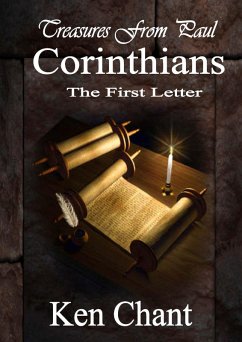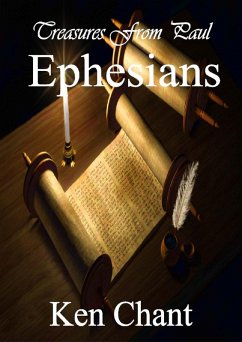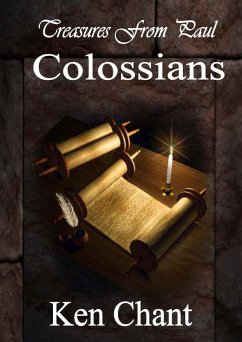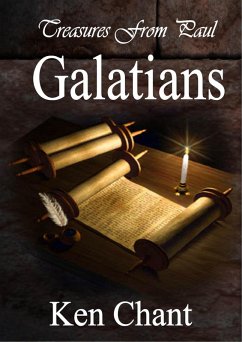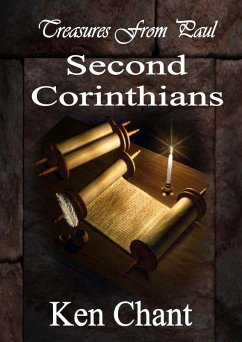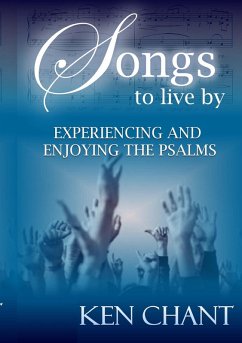
Treasures From Paul: Philippians (eBook, ePUB)

PAYBACK Punkte
0 °P sammeln!
If one word could be used to summarise Paul's Letter to the Philippians, it would be "joy"; and if there is one verse that encapsules the theme of the letter it would be "rejoice in the Lord always, and again I say, 'Rejoice!'" (4:4; 1:4, 25; 2:2, 29; 4:1) That the letter should be so redolent of laughter is astonishing, given Paul's painful first contact with the city. The dramatic story is told in Acts 16:12-40, how Paul and Silas arrived in Philippi, preached there, were arrested for causing a public nuisance, and brutally flogged. They were then thrown into a cell, where their legs, chaine...
If one word could be used to summarise Paul's Letter to the Philippians, it would be "joy"; and if there is one verse that encapsules the theme of the letter it would be "rejoice in the Lord always, and again I say, 'Rejoice!'" (4:4; 1:4, 25; 2:2, 29; 4:1) That the letter should be so redolent of laughter is astonishing, given Paul's painful first contact with the city. The dramatic story is told in Acts 16:12-40, how Paul and Silas arrived in Philippi, preached there, were arrested for causing a public nuisance, and brutally flogged. They were then thrown into a cell, where their legs, chained into stocks, were agonisingly stretched to the point of dislocation. There, at midnight, despite their lacerated backs and tortured limbs, they sang hymns and praised God. The Lord responded by causing an earthquake to smash open the stocks and to release the prisoners from their chains. Observing these extraordinary events, the chief jailer and his family converted to Christ and were baptised that same night, while the magistrates, learning to their horror that Paul was a Roman citizen whom they had illegally flogged, came to him and Silas, humbly apologised, and begged them to leave the city. I remain uncertain what my reactions would have been to such an amazing sequence of misery and miracle! Would I remember mostly the pain and so look on the city with loathing thereafter? Or would my recollections be dominated by the marvellous earthquake, the delight of a family's embrace of Christ, the satisfaction of receiving an abject apology from the city authorities, and the loving welcome of Lydia and her family? I would hope the latter! But in any case, that is what Paul did. He chose to remember the miracle of the earthquake, the love of the new Christians, the joy of a successfully planted church, and the pleasure he had found in two later visits to the city prior to writing his letter to them. And so his letter laughs! Paul had an obvious love for the church at Philippi (1:8; 4:1). Alone among the churches to whom he wrote, he had no criticism of that church for false doctrine, or for divisions, ungodly deeds, and the like. True, there were some individuals whom he felt obliged to rebuke (1:15; 3:2, 18; 4:2), but he had no criticism to offer, only affection, which he expressed to the church as a whole. His letter was written in part to assure them of his love and his care for them, and also to deal with a handful of other matters of interest, without any special overriding theme, except perhaps gratitude. Paul was grateful for a generous gift that he had received from them, and for which he thanked them heartily. The gift was carried to him by Epaphroditus, whom Paul was particularly glad to see again (4:10, 14-18), especially because he (Epaphroditus) had only recently recovered from a serious illness (2:25-27).
Dieser Download kann aus rechtlichen Gründen nur mit Rechnungsadresse in A, B, CY, CZ, D, DK, EW, E, FIN, F, GR, H, IRL, I, LT, L, LR, M, NL, PL, P, R, S, SLO, SK ausgeliefert werden.




